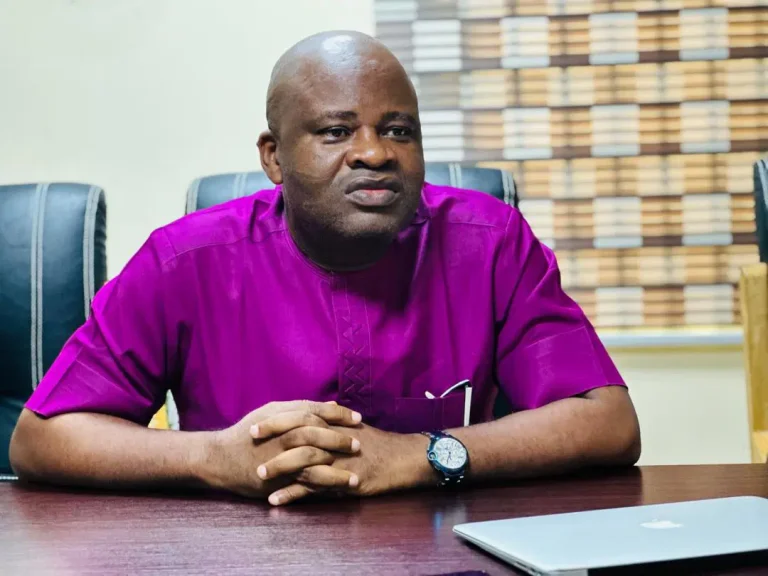
Nigeria’s pharmaceutical industry is bucking the trend with daring billion-dollar investments in domestic manufacturing, and the Association of Community Pharmacists of Nigeria (ACPN) has stated that it will not tolerate any attempt to weaken its professional standards through foolish regulatory mergers.
The National Secretary, Omokhafe Ashore, FPSN, and National Chairman, Pharm. Ambrose Ezeh, MAW, DCPharm, spoke ahead of the ACPN’s 44th Annual National Conference, which will take place in Awka, Anambra State, from July 22–27. They praised Nigerian pharmaceutical manufacturers for expanding their local production capacity in spite of persistent threats like counterfeit medications and regulatory bottlenecks.
Ezeh stated in a pre-conference briefing that “despite obstacles, our pharmaceutical industry is on a growth trajectory, thanks to visionary investors building Active Pharmaceutical Ingredient (API) plants and modern factories.” The story is being changed by businesses like Fidson Healthcare, Emzor, Codix Healthcare, and Jawa Pharm, which are increasing medicine security for our citizens and propelling the market to a $10 billion size in five years.
If the government consciously supports the pharmaceutical business, he continued, local capacity expansion from antiretroviral medications to medical consumables demonstrates that Nigeria’s pharmaceutical sector can underpin health security and create jobs.
In order to achieve WHO Good Manufacturing Practice (GMP) standards, we anticipate that the government will support these investments by making equipment, raw materials, and an enabling environment more easily accessible. That is how we can leverage Africa’s Free Trade Area and boost GDP growth,” Ezeh emphasized.
But before enacting disruptive policies like MEDIPOOL, the Federal Ministry of Health (FMoH) should involve key pharmacy practice stakeholders, the ACPN Chairman cautioned against piecemeal policy moves.
The foundation of a strong national drug policy must be strong stakeholder participation rather than top-down orders that disregard practical realities. The National Drug Distribution Guidelines must be strictly enforced, and we request that the Fake Drug Act be tightened with harsher penalties,” he stated.
The ACPN and the entire pharmacy profession strongly oppose any attempt to combine the Pharmacy Council of Nigeria (PCN) with other health regulatory organizations, according to Ezeh, who was speaking about the proposed National Health Facility Regulatory Authority (NHFRA) Bill that is presently before the National Assembly.
“Practice of pharmacy is governed as a separate profession worldwide. Every country, from South Africa to Ghana, Canada to Britain, has its own independent pharmacy council to protect standards,” said Omokhafe Ashore, secretary of the ACPN.
Read Also: New FAAN Board Inaugurated, Ganduje Appointed Chairman by Keyamo
He clarified that a cumbersome merger that would weaken standards and make it more difficult to combat counterfeit and subpar medications would undermine the PCN’s experience, their national organization, and their WHO status as a premier national regulator.
We would only see bureaucratic uncertainty, resource waste, and a decline in professional standards if we merged with unrelated health regulators. To ensure that Nigerians have access to safe medications, the PCN must continue to be independent and dedicated, according to Ashore.
In response to media disputes with medical associations, the leadership of the ACPN charged that certain factions within the Nigerian Medical Association (NMA) were impeding reforms aimed at modernizing pharmacy practice, such as the availability of PharmD recognition and a consultant cadre for pharmacists.
Since doctors receive government-funded residencies while pharmacists pay millions for specialized training, these physician groups have continuously obstructed pharmacists’ equitable advancement. Now, the government must put an end to this injustice,” Ezeh demanded.
He called on President Bola Tinubu to ensure equitable representation in leadership positions within Federal Health Institutions (FHIs) and to actively involve non-physician health workers, who make up more than 80% of the health workforce, in order to ease residual tensions.
The ACPN and affiliated unions under JOHESU will have no choice but to fight using all legal means if the federal government continues to ignore these abuses. He said, “Resistance becomes a duty when injustice becomes law.”